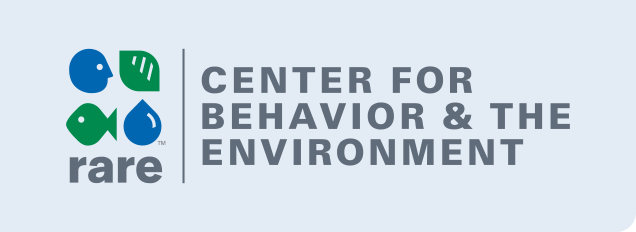About the review:
The Scientific and Technical Advisory Panel (STAP) of the Global Environment Facility (GEF) partnered with Rare’s Center for Behavior & the Environment to produce a comprehensive literature review of the science of changing behavior for environmental outcomes. While environmental challenges may seem disparate, almost all are unified by a central theme: to achieve positive environmental outcomes, people must act differently. In the past, those hoping to achieve environmental change applied a specific set of levers: rules and regulations, material incentives, and the provision of information. However, these levers are frequently insufficient. The past decades of research in the behavioral and social sciences have pointed towards new directions to meet those environmental ends: addressing barriers, motivations, and social context of the actors whose behavior would need to change as the primary focus for program design.
In this review, we identify and describe behavior change interventions that tackle components of five leading environmental challenges: biodiversity conservation, climate mitigation, water management and conservation, waste management, and land management. We review these interventions from three main perspectives: the strength of evidence, their integration of insights from behavioral science, and their integration of insights from social science. We conclude with a framework for understanding how program designers can more effectively integrate behavioral and social sciences into behavior change programming to improve environmental outcomes.
The Global Environment Facility (GEF) seeks to address the root causes and consequences of global environmental change by transforming markets and behaviors: unsustainable practices and behaviors are at the heart of the drivers of global environmental change, and responding to these can help to transform systems. See their post about why behavior change matters for their work and what to do about it here.

